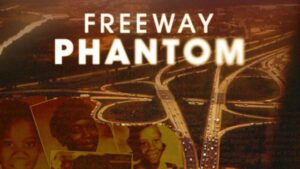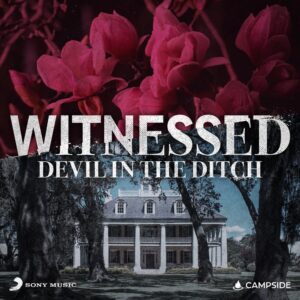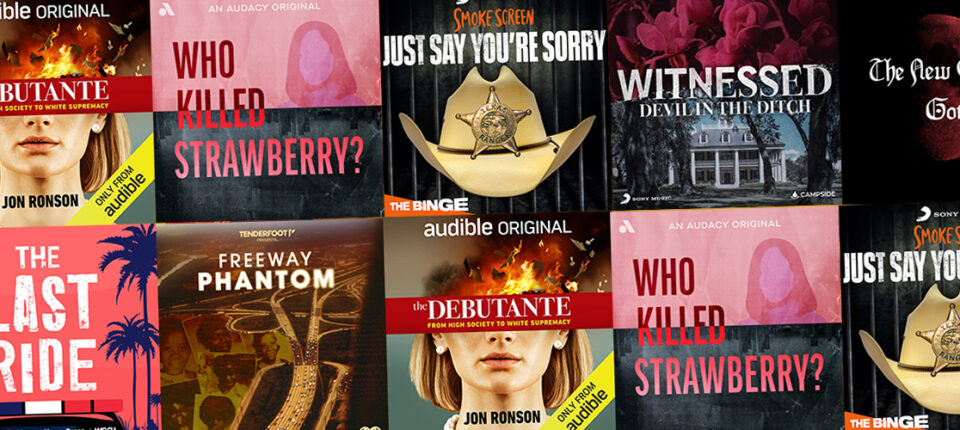Are you worried about the future of, well, just about everything, given the decidedly-not-creeping rise of AI? The way concepts like “deep learning” and “neural networks” will soon worm their way into all manner of media, from podcasting to my own dearly beloved scribbling?
I know that AI is nothing new (Philip K. Dick was writing about the concept way back in the ‘60s), that the current model upon which the open-use version of ChatGPT is based is not “new” itself. Instead, it’s stuck in a Palm Springs-style time loop of sorts (its knowledge base stops at September 2021.)
Back in September 2021, generative AI was the furthest thing from my mind. I was fresh off a road trip to Key West, where I ate what I will attest to my dying day was the best piece of key lime pie in human history.
I still dream about that cold, creamy slice of citric heaven (and the grainy slab of graham cracker crumble upon which it sat).
A few years from now, could I “feed” a text-based prompt to an AI, describing the exact texture of pie’s sandy (but in a good way) bottom, the rich filling’s tang, the way crust and filling intermingled to create a veritable symphony of unforgettable flavor, and have the AI make me an exact replica of that pie?
(Okay, I know what purple prose is, that it is something generally to be avoided, and that a large-language model [LLM] reading this would probably flag the above paragraph as such, but I simply do not care. The pie was that good.)
In all seriousness, I am somewhat afraid. On-demand pie is one thing. The death of the writing profession is quite another. I am all for any LLM that wants to make me pie, but the day AI outpaces the abilities of human writers such as myself is one I’m not looking forward to in the slightest.
Out of curiosity, I recently fed ChatGPT the synopsis of my novel-in-progress, which I’ve been working on for the past three and a half years or so. (In typical Zil fashion, the book is far from finished, though I do have pretty solid flap copy!)
I won’t tell you what it’s about, but I will share that my favorite two writers are Ottessa Moshfegh and Alissa Nutting, so that should give you a bit of an idea of the direction my book is going in.
Anyway, the prompt I gave ChatGPT was something like, “Write a 137-page novella with the following synopsis…” followed by the synopsis of my novel.
When ChatGPT informed me that writing an entire novella was not within its powers, instead of springing for GPT4, I cut my request down to a 1000-word short story. What resulted? Well, it was something that sort of resembled my novel. The general contours were about the same, but the whole direction the AI took my novel in (think heavy doses of therapy and positive self-actualization for the wayward narrator) were decidedly not what I had in mind. Self-improvement? Please. My characters and I prefer to soak in Olympic-sized pools of self-loathing and disgust.
In all seriousness, I am a big proponent of therapy. But I don’t want my novel to resemble my “real” life because my real life is actually quite boring.
You know what? I had so much fun writing this intro. If a machine wants to take that away from me, well, to employ a turn of phrase any halfway decent LLM would label as “clichéd,” he/she/it will have to pry my sticker-covered, missing-a-bunch-of-keys laptop from my cold, dead, unmanicured hands.

Freeway Phantom
(Tenderfoot TV/Black Bar Mitzvah/iHeartPodcasts)
Premiered May 17, 2023. New episodes every Wednesday.
Carol Spinks, age 13. Darlenia Johnson, age 16. Brenda Crockett, age 10. Nenomoshia Yates, age 12. Brenda Woodard, age 18.
If you don’t know their names, you should. They belong to five young Black girls and women, all of whom were murdered during a 17-month period, their bodies left along highways in the Washington, DC area. More than five decades later, their cases still have not been solved—racial inequity is rife in the criminal justice system, and cold cases involving people of color go unsolved at alarming rates
—but host Celeste Headlee (a long-time radio journalist based in DC whose work has appeared on NPR, PBS, and TEDx) and executive producer Jay Ellis (Insecure, Top Gun: Maverick) are working to change that.
Freeway Phantom is the result of two years of writing, research, and reporting on—years poring over original case files, visiting important sites from the case, interviewing people connected to the case, and working closely with Romaine Jenkins, the now-retired DC police detective who dedicated years of her life to bringing justice and closure to the victims’ families.
The still-uncaught perpetrator, who earned the moniker the “Freeway Phantom” and is said to be DC’s first serial killer, terrorized victims’ families with phone calls and authored a note claiming responsibility for the murders. Over the course of this ten-episode series, Headlee dives head-first into the details of the case, painting a picture not only of the murders but also of the precious lives these young girls and women were robbed of. Check out the teaser trailer here.

The Debutante
(Audible Originals)
Premiered April 2023
As you can probably guess from the title of this podcast, the person at the center of Jon Ronson’s (So You’ve Been Publicly Shamed, The Psychopath Test) newest project was a debutante. An award-winning equestrienne and daughter of wealthy parents, Carol Howe’s path veered very much away from the world of Tulsa high society as she entered adulthood.
After graduating from high school, Howe fell in with a violent band of Neo-Nazis, began dating infamous right-wing terrorist Dennis Mahon, and lived for a time in a white-supremacist compound called Elohim City. Though it in no way makes up for her utterly reprehensible viewpoints and actions, Howe later became a confidential ATF informant, documenting the white-supremacy movement’s activities in meticulous detail and passing info along to the feds. Among that information was an Elohim City plot to bomb Oklahoma federal buildings, which Howe shared with her handlers just months before the fatal April 1995 Oklahoma City Bombing. What were the links between Oklahoma City bomber Timothy McVeigh and Elohim City residents? Could the 1995 tragedy possibly have been averted? Did the feds take Howe’s tip seriously, and if not, why? Why was Howe “deactivated” as an informant not long after she shared news of the bombing plot with feds? That’s what Ronson (in his excellent British accent) is here to find out.

Who Killed Strawberry?
(Audacy)
Premiered March 2023
Politics and true crime are a deliciously devious (not to mention delectable) duo, and this next podcast serves both up: Who Killed Strawberry is one part deep-dive into one of Detroit’s most notorious unsolved (technically speaking, but we’ll get to that in a minute) murder cases, one part political corruption thriller.
Two decades ago, Tamara Greene was a mother of three who was attending school to become a nurse. The twenty-seven year-old, who used the stage name “Strawberry,” worked as a high-end exotic dancer to support her family. Tragically, her life was cut short in 2003 when she was killed in a drive-by shooting on Detroit’s west side.
Some sources say that the intended target was Greene’s boyfriend, that her murder was an unfortunate “wrong-place, wrong-time” incident. Others will tell you…well…a very different story, one with very House of Cards vibes.
You see, four months before her death, Greene allegedly (there’s so much disagreement surrounding the particulars of this case, you can basically stick an “allegedly” in front of every active verb moving forward) danced for then-mayor Kwame Kilpatrick at the Manoogian Mansion (for those of you who aren’t Michiganders, the Manoogian Mansion is the mayor of Detroit’s official residence.) According to some, the very-much married Kilpatrick’s wife showed up, did not like the fact that Greene was giving the mayor a lap dance, and proceeded to beat Greene with a baseball bat. Or a high-heeled shoe. It depends on whom you ask.
Was Greene’s death connected to what has become known in Detroit news circles as the “never-proven Manoogian Mansion party”? True, the Kilpatrick administration was involved in some very shady dealings. (In 2013, Kilpatrick—and I promise these things aren’t spoilers since they’re not related to Greene’s case—would be convicted of wire fraud, mail fraud, and racketeering and sentenced to 28 years in prison.) But a murder cover-up? Who Killed Strawberry dives into the conflicting viewpoints surrounding this case by interviewing those who were directly involved in the case (including the person who is currently the number-one suspect in Greene’s murder.)

Smoke Screen: Just Say You’re Sorry
(Sony Music Entertainment/Marshall Project)
Premiered May 1, 2023
I’ve always been fascinated by false confessions. What prompts someone to confess to a crime he or she did not commit? Assuming the person is not confessing in pursuit of fame and notoriety (as was likely the case with John Mark Karr, who in 2006 confessed to the murder of JonBenét Ramsey—DNA testing revealed his confession to be false), why would someone do such a thing? What circumstances need to be in place (or, more specifically, what kinds of unethical psychological techniques would law enforcement need to use) for a false confession to take place?
In Smoke Screen’s sixth season, criminal justice journalist Maurice Chammah (author of Let the Lord Sort Them: The Life and Death of the Death Penalty and a staff writer for The Marshall Project, a nonprofit news organization focusing on the criminal justice system–definitely recommend checking out their long-form investigative articles) tackles the case of Air Force veteran Larry Driskill, who in 2015 confessed to the murder of Bobbie Sue Hill, a 29-year-old mother of five living in the Fort Worth Area. Driskill’s confession was extracted by one James “Jimmy” Holland, a Texas Ranger who gained a reputation as a “serial killer whisperer” on account of his ability to coax information out of supposed criminals.
You may not have heard of Holland before, but if you’re a true-crime addict like I am, you’ve probably heard of the person largely responsible for solidifying his reputation: Samuel Little, the US’s most prolific serial killer to date. Over the course of 700 hours (and shared helpings of grits and milkshakes), Holland got Little to confess to no fewer than 93 murders (as of publication time, FBI officials have confirmed Little’s involvement in 60 of those murders.)
In Smoke Screen: Just Say You’re Sorry, Chammah pulls back the curtain on the shocking, manipulative—but legal—tactics Holland used with Driskill, including hypnotism, lies, and brutal interrogation techniques. In so doing, Chammah reveals not only how one false confession came to be (one that would wind up sending the innocent Driskill to prison for a 15-year bid), but also the terrifying way such interrogation techniques have become part and parcel of the modern criminal justice system.

Witnessed: Devil in the Ditch
(Campside Media)
Premiered April 3, 2023
So, I wanted to do a cool intro to this next pod by mentioning the fact that Donna Tartt (author of The Secret History, The Little Friend, and The Goldfinch) is from the same town in which the murder in question took place, but…
Well, let’s just say my knowledge of Mississippi geography extends more to fictional places like Faulkner’s Yoknapatawpha County than real towns. Turns out Madame Tartt (would she mind if I called her this? Maybe “Lady” or “Duchess” would be a better honorific for the veritable grand dame of Southern Gothic noir) is from Greenwood, whereas Witnessed: Devil in the Ditch takes place in Greenville.
Plans to impress you with my literary knowledge foiled, I shall now give you the general contours of this next pod, which seems ripe for a big screen adaptation by none other than Tartt herself. (Does she do screenwriting? Or are such plebeian pursuits beneath her?)
In Greenville, MS, which is exactly one-hour due west of Tartt’s hometown of Greenwood, a brutal murder of a beloved grandmother has remained unsolved for nearly two decades. In 2003, Larrison Campbell’s 85 year-old grandmother Presh was discovered bludgeoned to death in the parlor of her home. Campbell, a journalist (who attended my alma mater of Wesleyan University!), spent the last year “trying to figure out why the person who murdered my grandmother is probably walking around free.” The result is this podcast, Campbell’s own investigation into her grandmother’s murder, one that will take Campbell back to her hometown, a pocket of the Deep South where as many as 80% of homicides remain unsolved.

The New England Gothic
(Cait Ford)
Premiered January 2023. New episodes every Friday.
if you’ve ever snuck a peek at my Pinterest (I have no shame in admitting that I am an extremely dedicated user of what I recently learned is the world’s 14th most popular social media platform—I’m @lizzymeowmeow if you wanna be friends or whatever), you’ll see that a good chunk of my boards and pins revolve around the following themes: autumn, witches, pumpkins, and Halloween.
I spent a large portion of quarantine in rural Massachusetts (and I’m talking very rural—as I think I’ve mentioned before, our closest neighbors were of the bovine persuasion), where I traded in my obsession with all things Floridian for a love of New England spookiness.
While I may have since moved back to NYC, I’ve kept up with my #NewEnglandGothic pinning, which is why I was so happy to learn that a podcast of the exact same name.
Halloween may be more than five months away (not that I’m counting down the days to my favorite holiday…but actually I do have an orange countdown timer on desktop whose purpose will remain classified), but luckily, I can bask in all things spooky thanks to this new-in-2023 podcast. On the menu? “Jolly” Jane Toppan, a Victorian-era nurse-turned-murderess who terrorized the Boston area with her deadly exploits (and confessed to a total of 21 killings). Also check out host Cait Ford’s episode on the Borden family (turns out Lizzie isn’t the only Borden with some sordid tales in her past—the family tree is sprawling and has more than enough nefariousness to go around.)

The Last Ride
(WGCU Public Media/NPR)
Premiered April 4, 2023. New episodes every Tuesday
You didn’t think you were getting out of here without a Florida podcast recommendation, did you? The Last Ride, which explores the negligence and systemic racism at the heart of the Sunshine State’s criminal justice system, is one of my favorites this season, and not just because it examines a set of cases that took place not far from where I grew up.
It’s October 2003. George W. Bush is president. The Iraq War is barely seven months old. Stateside, Nelly, P. Diddy, and Murphy Lee’s “Shake Ya Tailfeather” dominates the airwaves while Kill Bill: Vol. 1 is raking it in at the box office. In the early morning hours of October 14th in Naples, Florida, Felipe Santos, a 24-year-old new father, is involved in a minor traffic accident while on his way to work. Because Felipe was driving without a license or insurance, responding officer Steve Calkins takes him away in his patrol car. Calkins insists that he “unarrested” Felipe not long after picking him up and dropped him off at a nearby Circle K. Felipe, a devoted father with a four-month-old daughter at home, is never seen or heard from again.
Three months later, an eerily incident occurs. Terrance Williams, a 27-year-old Tennessee transplant, disappears after an interaction with Calkins. Calkins claims once again that he “unarrested” Williams (who had been driving without a valid driver’s license and expired registration), dropping him off a Circle K.
In both cases, Calkins’s story of dropping each man off at a Circle K could not be corroborated.
Nearly two decades later, neither Santos nor Williams has ever been located, nor has Calkins ever been charged with any crime in connection with the two men’s disappearances.
What happened to these two young men of color? Why did law enforcement fail to solve their likely murders? Why were their stories ignored by the media for so long? Hosted by award-winning journalist Janine Zeitlin and featuring reporting by the Naples Daily News and Fort Myers News-Press, The Last Ride includes exclusive interviews with Tyler Perry (who became involved in the case in 2018), legendary civil rights attorney Ben Crump, and investigators who were involved in the two men’s cases. What’s more? You’ll get to hear original polygraph audio direct from the case files.

















